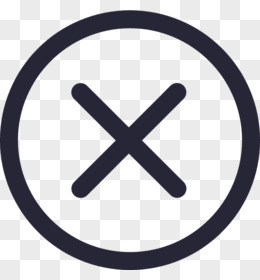Opinion | Freedom of expression: Hong Kong protects the rights its critics debase

By Grenville Cross
In Hong Kong, freedom of expression is doubly protected, being guaranteed by both the Basic Law (Art.27) and the Hong Kong Bill of Rights (Art.16). The idea that people should be allowed to hold and express their own opinions has always been highly cherished in Hong Kong, and this did not change after 1997. In the Court of Final Appeal, the then-chief justice, Andrew Li Kwok-nang, described freedom of expression as "a fundamental freedom", and one that "lies at the heart of civil society and of Hong Kong's system and of its way of life" (FACC 4/1999).
There are, of course, various ways in which freedom of expression is exercised, and, for example, the Police Force has always done its best to facilitate public protests. Even during the insurrection of 2019-20, most public protests were allowed to proceed, with only 47 being denied approval in 2019, and 42 in 2020. Even in 2021, when the COVID-19 pandemic necessitated tight controls, the police authorized 76 public processions, which speaks for itself.
The people of Hong Kong also enjoy a vibrant media, and, as of Sept 30, 2021, there were 94 daily newspapers and 451 periodicals (including numerous electronic newspapers), three domestic free television program service licensees, two domestic pay television program service licensees, 10 non-domestic television program service licensees, one government-funded public service broadcaster, and two sound broadcasting licensees.
However, freedom of expression, like other rights, is not absolute. As the International Covenant on Civil and Political Rights, which applies in Hong Kong, recognizes, lawful restrictions are permissible, as where they are necessary to protect public order, national security or the rights of others (Art.19). Although Hong Kong has always allowed protesters to exercise their rights as much as possible, some have overstepped the mark, and there have been consequences. They have tried, for example, to promote hatred, to create division in society and to break up the country, thereby crossing the parameters of acceptability.
Although it is universally accepted that basic freedoms are not absolute, the United States and its partners have tried to demonize Hong Kong for protecting itself from those who wish it ill. The UK, for example, has taken the lead in criticizing the balance Hong Kong has sought to achieve between freedom of expression and civic responsibility, even though it has itself clamped down ferociously on free speech at home. When, for example, the then-foreign secretary, Liz Truss, issued the UK's 49th six-monthly report on Hong Kong on Dec 14, 2021, she complained that freedom of expression was facing "ever increasing pressure". She then followed this up, in the 50th report, issued on March 31, 2022, with an allegation that the national security legislation was being "used to stifle freedom of expression".
These slurs, however, not only ignored the entrenched constitutional status that freedom of expression enjoys, but also the situation on the ground. The availability, for example, of the latest telecommunications technology has attracted many international news agencies, newspapers with global readerships and overseas broadcasting operations to establish regional headquarters or representative offices in Hong Kong, and they would not be setting up shop in Hong Kong if freedom of expression were being stifled. In February, moreover, the government revealed that 209 media organizations, whether based locally, on the Chinese mainland or overseas, were registered with the Information Services Department, which actually showed an increase after the enactment of the National Security Law for Hong Kong in 2020.
It is, of course, always open to the media, like anybody else, to monitor the work of the government and criticize it, provided this is done responsibly and the law is not violated. After all, nobody is above the law, not even the fourth estate, and even Truss should be able to get her head around that.
What, however, made Truss' comments all the more unpalatable was her own government's efforts to stifle freedom of expression in Britain. When the Police, Crime, Sentencing and Courts Bill was published in 2021, there was huge opposition to the widening of police powers to control protestors. Over 600,000 people signed a petition opposing it, and over 350 charities and 750 academics called for it to be scrapped. Whereas the Labour Party's Baroness (Shami) Chakrabarti, a former shadow attorney general, called the bill "the greatest attack on peaceful protest in living memory", three UN special rapporteurs condemned it, and Parliament's Joint Committee on Human Rights described it as "oppressive and wrong".
Even the former prime minister, Theresa May, urged caution, while the former home secretary, Lord (David) Blunkett, warned that the bill would "drive a wedge between the police and ordinary people doing what you would expect them to do in a mature democracy — expressing dissent on issues they care passionately about".
This, however, was all water off a duck's back, and Boris Johnson's government, with Truss' support, rammed its bill through the Parliament, and it became law on April 28, 2022. What alarmed so many people was its criminalization of so much protest-related activity, much of it innocuous. It allows the police to act — whether through banning orders or otherwise — in cases that they consider to be "unjustifiably noisy protests that may have a significant impact on others", or that may cause disruption. Protesters can now be arrested for "public nuisance", and the police enjoy a wide discretion to arrest protesters whose activities upset somebody.
Once it was pointed out that the proposed law likely violated the right to freedom of expression enshrined in the UK's Human Rights Act (Art.10), the Johnson government scoffed, saying the police would apply it with moderation and good sense. One of the first people, however, to discover that this was not the case was Symon Hill, who, when King Charles III was proclaimed king in Oxford on Sept 11, 2022, shouted out, "Who elected him?" Upon witnessing this heinous "crime", the police handcuffed Hill, led him away, and told him he was being arrested under the Police, Crime, Sentencing and Courts Act.
If, however, the police thought they could cow Hill with their newly acquired powers, they were sorely mistaken. He has publicized his ordeal, and called on people "to support democracy". He said he is "determined to speak out about this unjust arrest", although he wondered "who else will be arrested under the vile Police, Crime, Sentencing and Courts Act".
Apart from the new anti-protest law, the police have other tools at their disposal, including the Public Order Act (1986), which allows them to arrest protestors for causing alarm or distress to others, and the common law offense of breaching the peace. In Edinburgh, a young woman carrying a sign that read "F--- imperialism, abolish monarchy" was arrested on Sept 12, 2022, shortly before an event proclaiming Charles as king, and led away, but not before a bystander shouted, "Let her go, it's free speech." The police subsequently announced that she had been arrested "in connection with a breach of the peace", and that criminal charges would follow. Shortly thereafter, a man who heckled Prince Andrew (by shouting "dirty old man") as the queen's cortege drove past, was also arrested for allegedly causing a breach of the peace, clearly a popular charge in Scotland, where the Police, Crime, Sentencing and Courts Act does not apply.
In response to these arrests, Coventry's member of Parliament, Zarah Sultana, said, "No one should be arrested for just expressing republican views. Extraordinary — and shocking — that this needs saying", but, in modern Britain, it clearly does.
In Westminster's Parliament Square, meanwhile, after the police removed a female protester for brandishing an anti-royalist placard, Paul Powlesland, a barrister and climate activist, was told by a police officer that if he wrote "Not my king" on the blank piece of paper he was carrying, he would be arrested under the Public Order Act, because somebody might be offended. In response, he said, "I think the idea that he could arrest me and that there could be a conviction under the Public Order Act was ludicrous, but instruments like that are having a chilling effect."
Not surprisingly, this clampdown on freedom of expression has triggered a backlash among libertarians and others, not least because the UK is signed up to the European Convention of Human Rights, which protects freedom of expression. From Liberty, the criminal justice campaign group, Jodie Beck, its policy
and campaigns officer, said it was "very worrying to see the police enforcing their broad powers in such a heavy-handed and punitive way". She added that "protest is not a gift from the state. It is a fundamental right."
The co-author of The Protest Handbook, Tom Wainwright, a barrister, has explained that the overzealous policing of peaceful demonstrations is now a concern, and that "the trend has been to crack down on protest for a long time". He also noted that the new law "has fed a sense that the protest is only allowed if it doesn't really draw any attention", and that the "bigger message police have been getting from the government is to clamp down", something borne out by the recent arrests of protesters.
Quite clearly, the clampdown on freedom of expression that the British government has initiated is harsh and wide-ranging, and has given the police far greater powers than those available to their counterparts in Hong Kong. It is, therefore, extraordinary that Truss has had the gall to criticize freedom of expression in Hong Kong, where the right is alive and well, and certainly not hamstrung as it is now in Britain.
The leading British barrister, Chris Daw KC, has described the Police, Crime, Sentencing and Courts Act as "the biggest widening of police powers to impose restrictions on public protest that we've seen in our lifetimes", and those who enacted it have forfeited any right to lecture others, whether in Hong Kong or elsewhere. However much pressure the US may place upon Truss to malign Hong Kong, she must always remember that hypocrisy in political leaders is always contemptible, and has even less to commend it than incompetence.
(Source: China Daily)
The author is a senior counsel and law professor, and was previously the director of public prosecutions of the Hong Kong Special Administrative Region.
The views don't necessarily reflect those of DotDotNews.








Comment